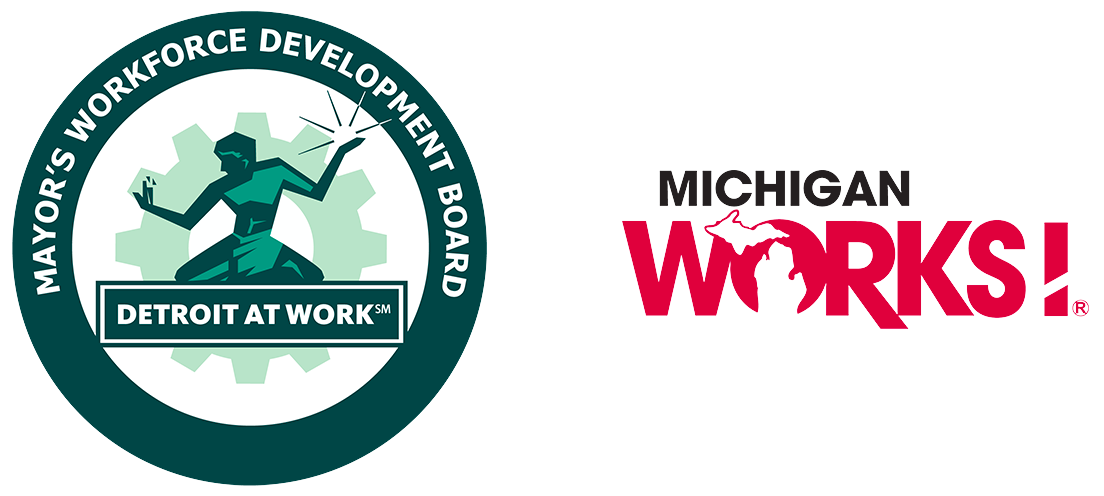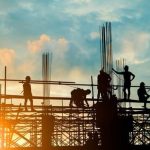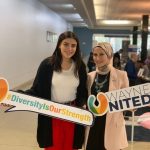Detroit Pistons refurbish first of 60 city park basketball courts
Detroit — Dozens of new basketballs bounced off the cerulean blue ground Friday at Littlefield Park, as players from the Northwestern High School boys’ and girls’ teams inaugurated the refurbished courts.
They all agreed the new space, paid for by the Detroit Pistons as a part of its community benefits package for its new headquarters, was a slam dunk.
“I’ve never seen anything like it,” 17-year-old Dominique Fuller said. “I was using a milk crate to play basketball at home, and it broke. I know I’m going to be playing here now.”
The Pistons traded out the old cracked gray asphalt for a bright new space with its logo at the center of the two courts behind Noble Elementary-Middle School. Littlefield’s courts are among the first of 60 the NBA franchise is redoing for $2.5 million across 50 city parks over six years.
“It wasn’t just about playing basketball games at Little Caesars Arena,” Detroit Pistons vice chairman Arn Tellem said of the team’s move from Auburn Hills to Detroit last year. “When we made our move, it was about being all-in on Detroit and being a part of Detroit and really investing in Detroit and participating in Detroit’s rebirth.”
Tellem said during a ribbon-cutting ceremony Friday the organization also is starting a “Basketball for All” program that, beginning next spring and summer, will offer clinics, camps and fitness programs on the refurbished courts and provide basketballs to Detroit youth, another community benefits promise.
“Our partnership doesn’t end here,” Tellem said. “We want to make sure we’re activating these courts and providing opportunities for our youth and community to stay healthy and active.”
Two courts at Rouge Park and one each at Algonquin-Goethe and Bennett parks have been updated as well. Courts at Optimist-Stout, Dequindre-Grixdale and 4th-Charlotte parks are expected to be done by the end of the year.
By early 2019, the city expects to have 26 courts refurbished at 15 parks, including Kelley, O’Hair, Adam Butzel, Palmer, Lasky, Maheras, Tolan and Romanowski parks.
Brad Dick, group executive of the city’s services and infrastructure, said the city has nearly 100 basketball courts. He said the Pistons’ investment will bring nearly all up to good condition.
It will be up to the city to keep the courts maintained. Dick said after the city’s bankruptcy, it was able to bring back the park development unit, which will be in charge of the maintenance. He said the refurbished courts, though, should be in good shape for 10 years.
Earl Cureton, a Detroit native and former NBA player who attended the ceremony Friday, said he is glad young people will have these neighborhood courts, where he found a love for the game.
“I made a lot of friends,” Cureton said. “It kept me into the game and out of some things that are not so good.”
Carol Pickens, a community strategist for Littlefield Community Association, had convinced the city to make Littlefield among the first renovated courts.
“Our goal is to give our community and residents a little bit of what we had growing up,” Pickens said. “We had a great park. We played sports. Our parents had to make us come in the house. Right now, our goal is to give our kids the same thing because they deserve the very best.”
Tellem said the Pistons organization is speaking with other corporate partners about other investments into city parks, as well.
In the New Center neighborhood, meanwhile, the estimated $83 million Henry Ford-Detroit Pistons Performance Center is rising two miles north of the Pistons’ home court in Little Caesars Arena. The 175,000-square-foot headquarters with 250 full-time employees includes a practice facility and a sports medicine building run by the Henry Ford Health System. It is scheduled to open during summer 2019.
The complex received $16 million in brownfield tax breaks from the Michigan Economic Development Corp. and $20 million in tax incentives from the Detroit City Council.
In addition to the redeveloped courts, the Pistons developers agreed at least 51 percent of the construction workforce for the headquarters would be city residents. The franchise also promised to donate $100,000 to the Detroit Employment Solutions Corp. to support workforce development, participate in the Grow Detroit’s Young Talent summer jobs program and provide 20,000 free tickets each season to Detroit youth and residents.
Mayor Mike Duggan said the Pistons originally had planned to build a community gym in its new headquarters but convinced the team to invest in the neighborhoods instead.
“We wanted to create a place,” Duggan said, “where the next generation’s dreams can come true.”
Read the original article here.




